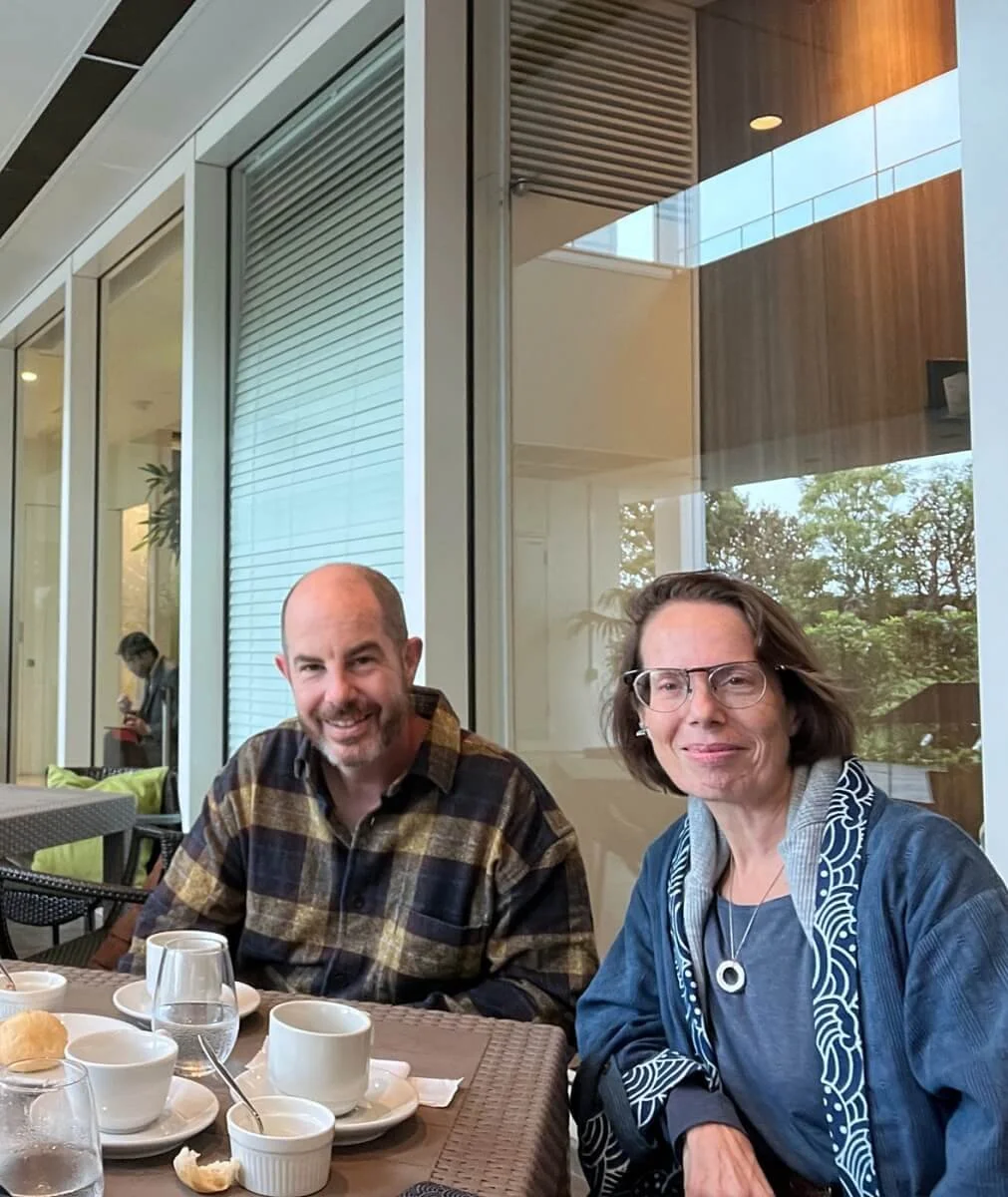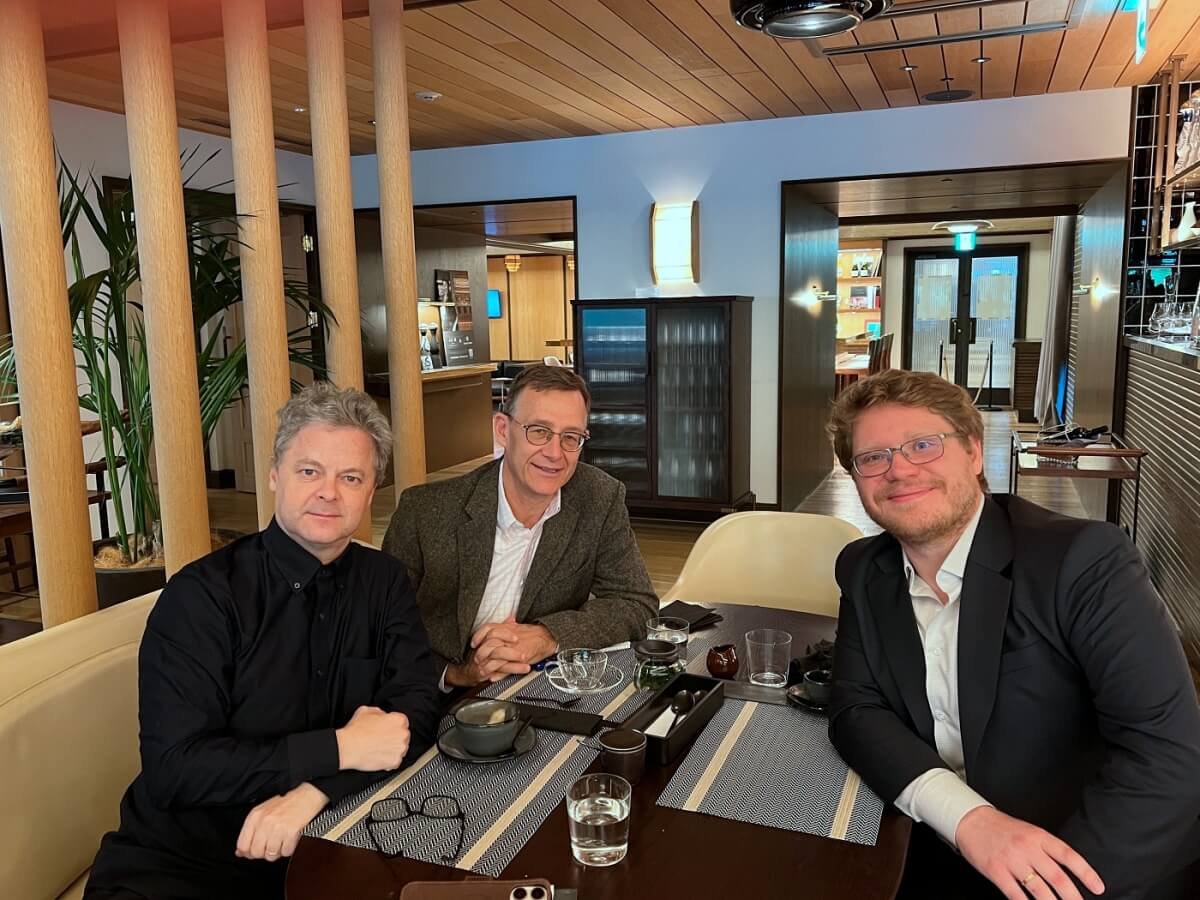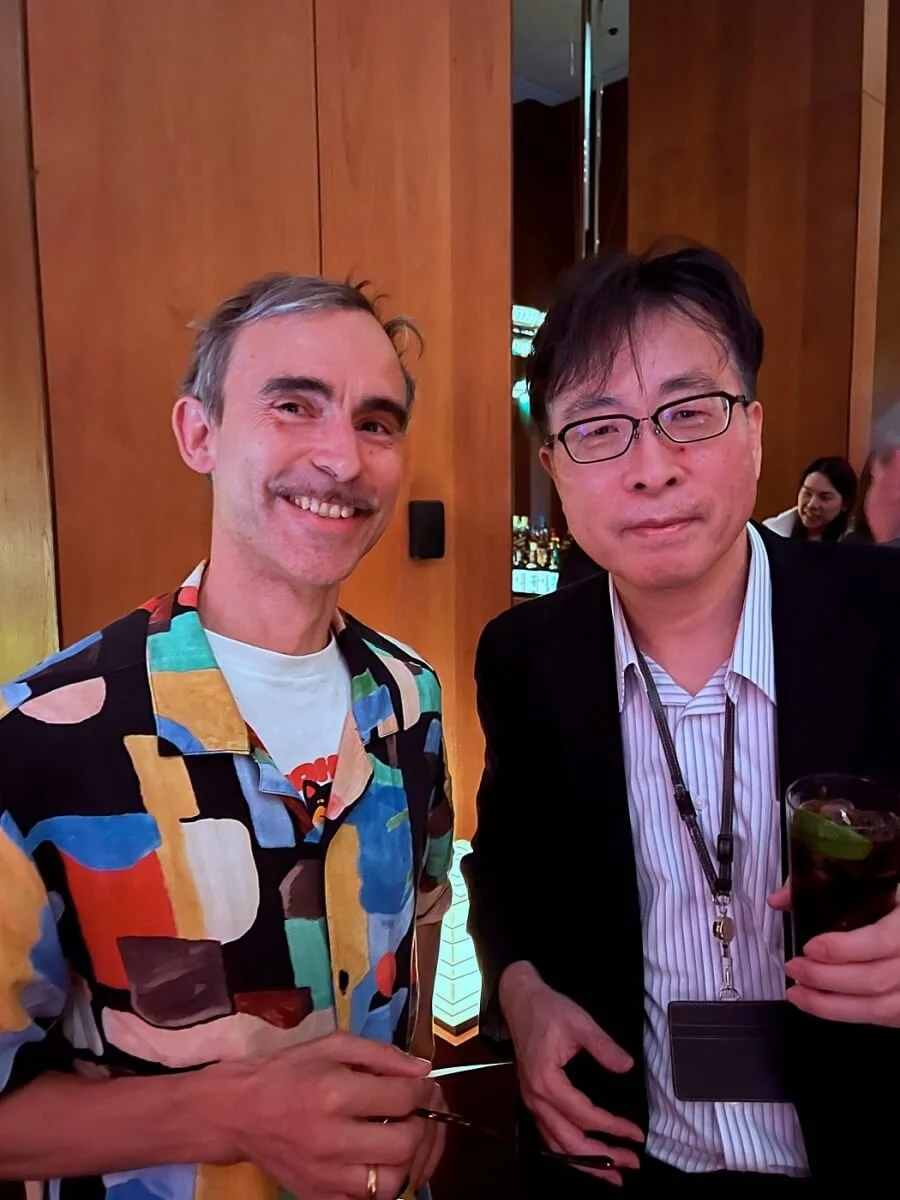The Delphi Roar: November 9th, 2025
Dear Members and Advisers,
I am writing this on Wednesday, just ahead of the French Chamber’s biggest conference of the year on Thursday, the France-Japan Business Summit. This is the brain-child of our very own Jerome Chouchan, president of the French Chamber, who suggested that I contribute. I am very happy to do so, as they have a great team of organisers and it’s rewarding to use my French.
I am moderating two session, and I'm deep in my "Intelligent Un-Expert" preparation.
The first is on Japan’s $1Trillion "GX" energy plan with top executives from TotalEnergies, Toyota Tsusho, and Veolia. These are complex topics, and I'm looking forward to asking the simple, "man on the street" questions - such as to what extent the government funding is being used effectively.
Next, I have a “fireside chat” with Christophe Weber of Takeda, which should also be fun. He’s an unusually down-to-earth and pragmatic CEO, with no pretensions or snobbery, and has a pretty incredible story to tell. I will be asking him if his company is really still Japanese - or has it become American?
If you are there, I look forward to seeing you!
Last year, the conference was wildly successful - and more to the point, fun.
Well, I will tell you next week how the conference went! Wish me luck!
Navigating the Takaichi Policy and New Labor Rules
For Country Managers in Japan, a new directive from Prime Minister Sanae Takaichi's administration represents one of the most significant potential shifts in the nation's operational landscape in years. This new Takaichi Policy has initiated a high-level review to "relax" Japan's current labor regulations, with a specific focus on rules governing work hours and Overtime.
This is not a minor administrative tweak; it is a fundamental re-evaluation of the 2019 Work Style Reform Act. For leaders responsible for P&L, compliance, and talent strategy in the Japanese market, proactively understanding and planning for these changes is an immediate strategic imperative.
Seen in the Network
Upcoming Events
Rebuilding LEGO Japan Post-COVID
LEGO Japan's leader shares exclusive insights on post-pandemic strategy, digital agility, and resilient leadership.
Delphi Cocktails November 2025
Join us November 25 at GAP Toranomon Hills for The Delphi Network Cocktail hosted by CEO Chris Mohler.
Building Through the Breakdown
A founder recounts surviving collapse, conflict, and recovery in Japan’s startup scene at our next Delphi Founders’ Roundtable.
A Gift for Members: Full Access to The Delphi Pulse
"The Delphi Pulse" is our official Substack newsletter, delivering timely insights into Japan's complex business landscape. It's where we distill our analysis on market trends, political shifts, and cultural dynamics for a wider professional audience. We use this platform to share the key observations and intelligence that matter most to leaders navigating Japan, helping you stay ahead of the curve.
As a valued member of The Delphi Roar, we are pleased to offer you a complimentary full subscription to "The Delphi Pulse." This exclusive perk unlocks all our paywalled articles, in-depth strategic analysis, and the complete archive, which are normally reserved for paid subscribers. It is our gift to you.
Heard in the Network
“My company in Japan has basically not grown in the last 10 years. It’s quite disturbing.”
“Our market share is just 1%. But at least there’s room to grow - right?”
“As the CM, I am overseeing a big move from being a value/discount brand to being something more. No more sales, or at least, we reduce it as much as possible. To do this, we fired a bunch of our customers - all the people who wanted only ultra-cheap stuff, however ugly. ”
“If you are a country manager, go and ask your team what the values of your company are. You might be shocked at how little they know. If you have a logo, ask them what is behind it. They likely won’t know that, either! ”
“Transitioning from the Public Sector to the Private sector can be a harsh transition, especially for younger people. The public sector tends to be very up-to-date on DEI and workplace conduct, but that is not always the case in the private sector.”
“Our fastest growing segment is e-commerce via Rakuten. But even for that, we use a distributor, in fact, the same one we use for offline sales. ”
“It’s wrong to think of Japanese distributors as being stupid. They know exactly what they are doing, and they have been doing it for a long time. They are very powerful, so it’s best to stay on good terms with them. ”
“As a new country manager, beware your team blaming everything on the distributor, or other Japanese partners. When I started my role, I went out drinking with my distributors and I discovered all the ways my predecessor has been “screwing them”. It was very helpful, as I knew exactly what to fix. ”
“Our marketing budget is ¥50M. Our closest Japanese rival spent ¥2 billion last year.”
“As the new CM, I was shocked when I came to Japan and discovered the abysmal penetration of our brand here, and after being here for 30 years! ”
“We hire young people interested in fashion who are also Tik-Tokkers. It’s a brilliant way of attracting attention. They work in our stores as sales associates. We have significantly lowered the average age of our customers. Our turnover has also decreased massively as a result. ”
“An interesting way to look at introducing new processes (eg technology) is what might act as a “stopper”. In my case, it was the realization by my staff that AI could give profoundly misleading results. Actually, this is less of a problem all the time, but it had a big impact, and put people off.”
“As a new country manager, I am horrified that whereas in Australia or the US I am dealing with 2-3 enormous players who cover over the half the country, in Japan I am dealing with 500 and still counting! ”
“When I took over as a foreign CM, our sales were terrible. HQ would yell orders at us, and my staff would yell orders at the distributors - who just ignored us, and carried on as usual. “As usual” means making very little effort to sell our products. ”
“Japan is formal but not hostile - even if it feels that way. But while the formality can be stifling, the Japanese are intelligent, and set up a “twin track” namely, drinking outside the office. It’s important to try to fix the relationship if you want business to improve. There is little point in reading the contract out to them. ”












